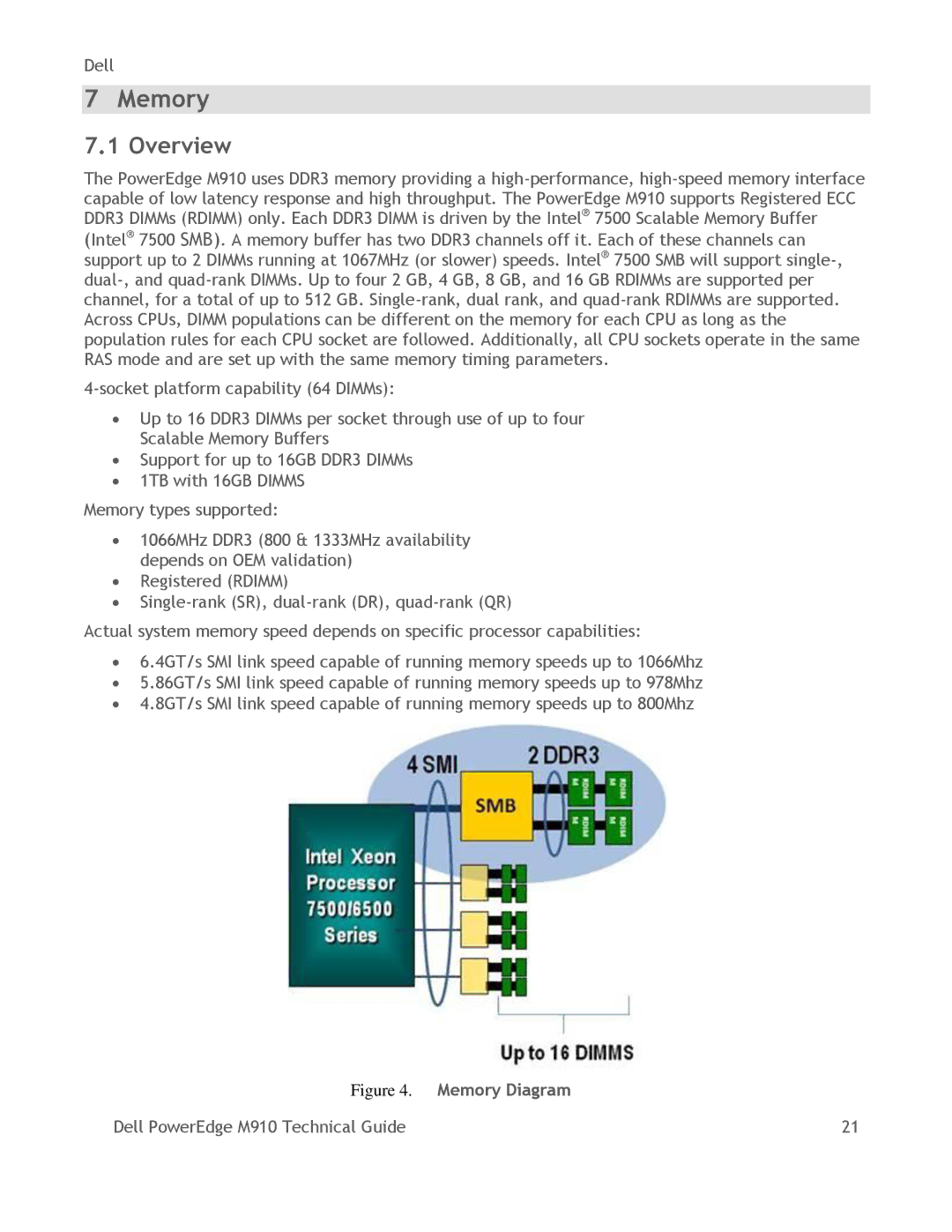M910 specifications
The Dell M910 is a powerful and versatile rack server designed for high-performance computing and data-intensive applications. This server is particularly well-suited for organizations looking to optimize their IT infrastructure for demanding workloads. It boasts an array of features, technologies, and characteristics that make it a reliable choice for enterprises seeking robust performance and scalability.At the heart of the Dell M910 is its ability to support multi-core Intel Xeon processors. This technology allows the server to handle multiple tasks simultaneously, making it ideal for virtualization, database management, and other resource-heavy applications. The M910's processor options deliver a significant increase in performance, enabling businesses to run the latest software efficiently without bottlenecks.
In terms of memory, the M910 offers substantial capacity and speed, supporting up to 1.5TB of DDR3 RAM across 18 DIMM slots. This extensive memory complements the processing capabilities, ensuring that applications run smoothly and that users experience minimal latency. Coupled with advanced memory technologies, the M910 can easily handle large datasets and complex computations.
Another standout feature of the Dell M910 is its storage capabilities. The server supports a range of hard drives and solid-state drives, allowing organizations to tailor their storage solutions to meet their unique needs. With multiple drive configurations, including RAID options, businesses can ensure data redundancy and improve access speeds, crucial for mission-critical applications.
The design of the M910 emphasizes ease of management and maintenance. Dell's OpenManage systems management tools provide comprehensive monitoring and control, allowing IT administrators to easily manage server health, performance, and security. This feature streamlines the maintenance process, reducing downtime and promoting efficiency.
Moreover, the M910 is built with energy efficiency in mind. Utilizing advanced power management technologies, it not only reduces overall power consumption but also helps organizations lower their operational costs. This is increasingly important for businesses aiming to minimize their environmental footprint while maintaining high performance.
In conclusion, the Dell M910 is an exemplary rack server that combines powerful processing capabilities, extensive memory options, versatile storage configurations, and advanced management tools. With its focus on performance, scalability, and reliability, it meets the needs of modern enterprises and positions them well for future growth. Whether for virtualization, data analysis, or other demanding workloads, the Dell M910 proves to be a formidable choice for organizations aiming to leverage technology effectively.

